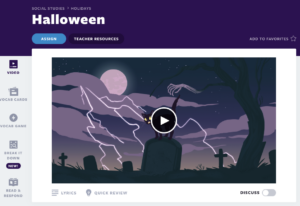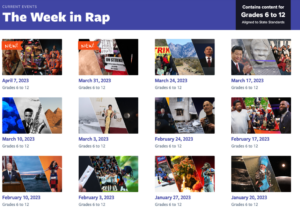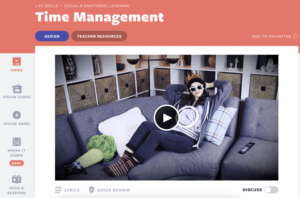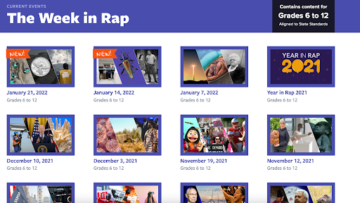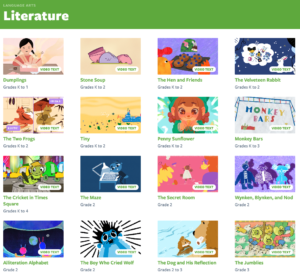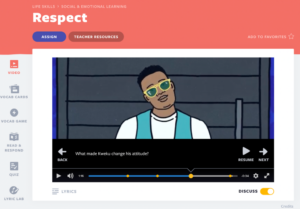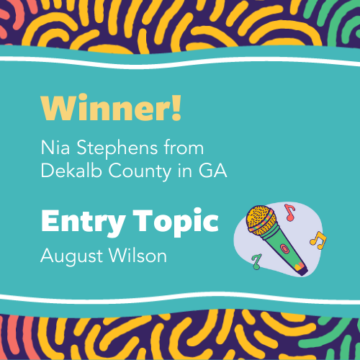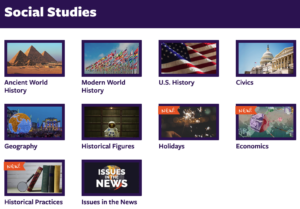Maintaining students’ motivation to learn while also meeting assessment requirements for proficiency is no easy feat. But that’s exactly what the educators of Richmond Public Schools (RPS) set out to do.
As a diverse school division with a strong focus on inclusion, RPS sought out tools and resources that could target and support individual students, while also encouraging full-classroom engagement. The district was equally committed to achieving outstanding results in language arts, math, reading, and science; to do this, students needed to strengthen their comprehension and vocabulary. Teachers had observed a crucial trend that closely aligned with their classroom experiences. They noticed that students often struggled with understanding academic vocabulary, primarily due to the lack of available resources to facilitate their learning.
That’s where Flocabulary comes in—helping RPS teachers infuse an extra layer of engagement, inclusivity, and literacy across core subjects. So, whether students are exploring the American Revolution, journeying through the solar system, or honing their multiplication skills, they no longer find themselves overwhelmed by intricate words and phrases.
Now, students are motivated by their progress through Word Up levels, and their scores in the Standards of Learning (SOL) state tests testify to their achievement.
Richmond Public Schools (RPS) highlights
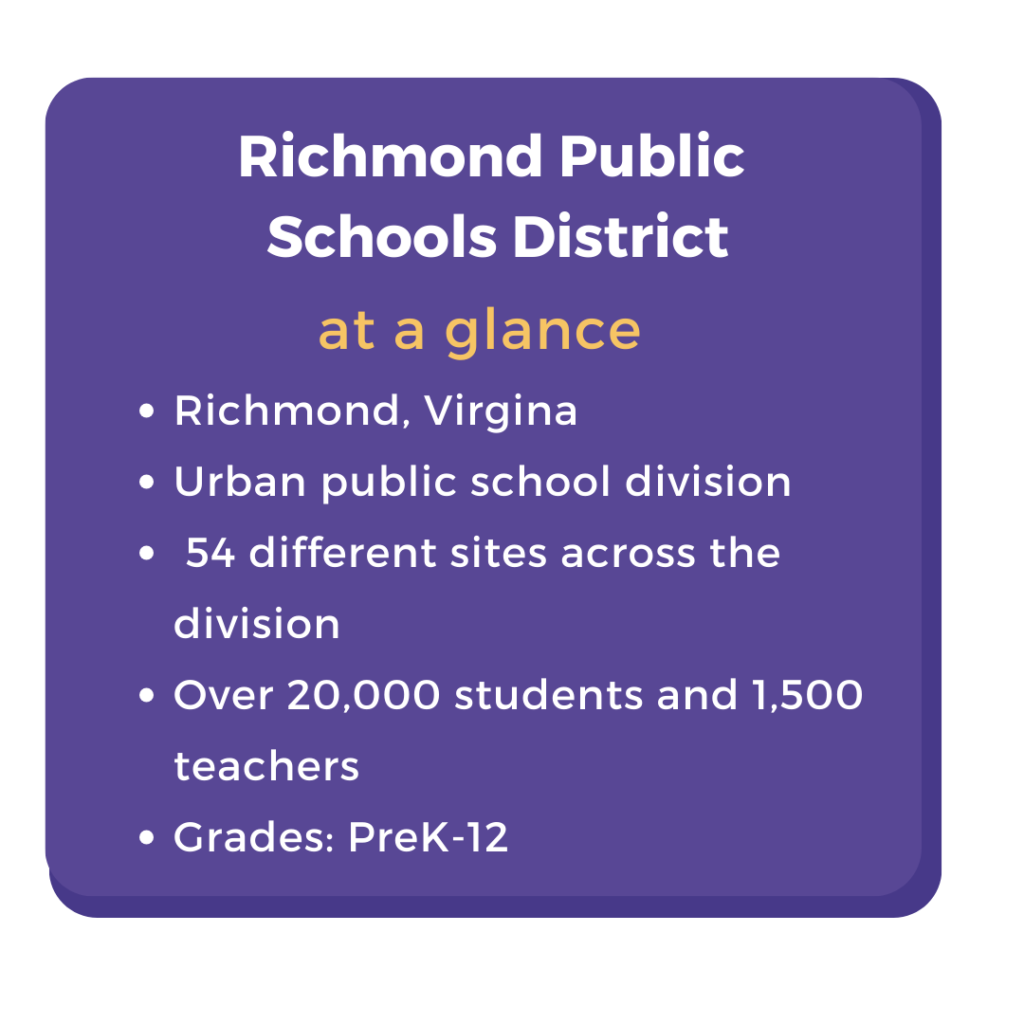
- Improved test scores and outcomes: Fourth-grade teachers made daily and diligent use of Flocabulary as they focused on measuring students’ growth rather than simply determining pass or fail outcomes. The scores in reading recorded a combined proficiency and growth of 75%, with growth reaching 60% and proficiency at 30%. In math, the combined proficiency and growth reached 90%, with proficiency increasing by 40% and growth by 85%. Teachers realized that when students want to learn and love to learn, their growth and proficiency progress in leaps and bounds – which, in turn, generates measurable academic results.
- Expanded access to a library of resources: Educators across the district now have more tools to support academic vocabulary.
- Highly engaged students: Teachers reported their students were clearly more motivated and excited about spelling and grammar using Flocabulary.
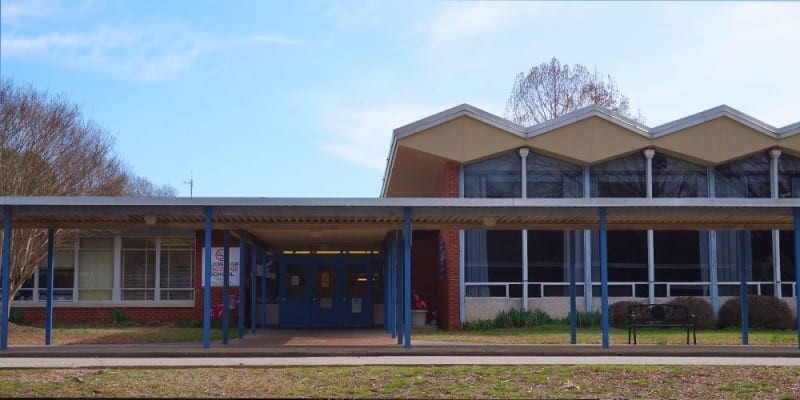
Challenge: How can we spark and maintain students’ excitement for learning, while also building vocabulary skills and boosting test scores?
Like many education technology integrators, Arianna Trickey faced a challenge. How could she find resources that not only resonate with and engage students but also align with the district’s academic initiatives?
Responsible for supporting four out of the 54 sites at RPS, Arianna also felt the need to emphasize that the resources she was bringing to the table were inclusive and helped foster a culturally responsive teaching approach.
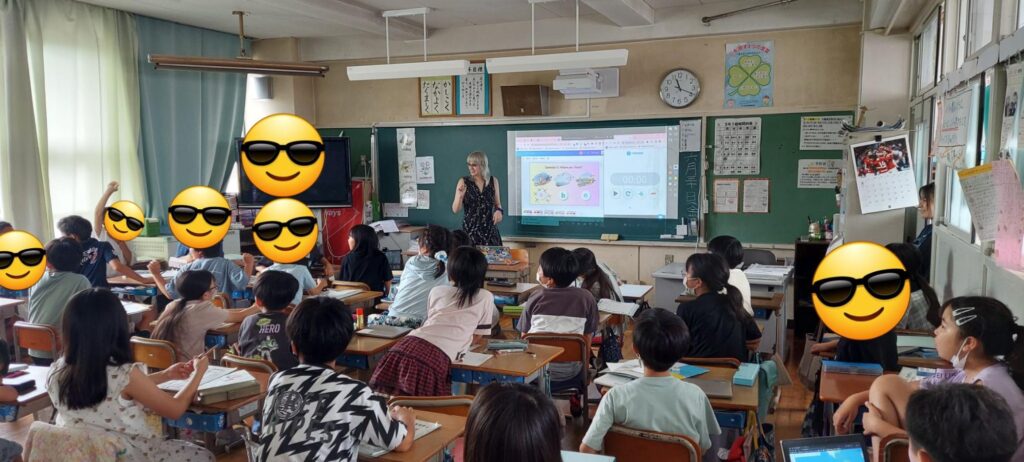
So, where to begin?
Her principal recommended that Arianna help lead an exercise to dive deeper into district data. During lunchtime planning sessions, teachers reviewed their assessment data and insights and then strategized how to improve test results.
Fourth-grade teacher Nicole Radick spotted a critical trend that correlated with what she saw in the classroom: Students didn’t understand their academic vocabulary because teachers didn’t have the resources to support learning it. “Our language arts curriculum tackles some vocabulary, but we needed something completely separate. We wanted to focus on vocabulary,” said Nicole.
It was also noted that many students across various grades and levels found a deep connection to themselves, to each other, and to words through hip-hop music.
Flocabulary: A catalyst for unlocking academic success
To kick things off, Flocabulary’s own Dr. Merv Jenkins conducted an immersion session that included the district’s curriculum and instruction teams, as well as Arianna’s integration team. During this session, he introduced the Word Up Project, an award-winning vocabulary and reading program for teaching Tier 2 words.
Arianna and the fourth-grade team of teachers at J.B. Fisher Elementary School decided to implement Flocabulary. Here’s an overview of the strategies they used to reach their goals:
Flocabulary’s impact on student engagement and learning outcomes
Here are some of the impactful ways Flocabulary is used to engage students and improve outcomes at Richmond Public Schools (RPS):
- Implementing the Word Up Project to enhance word strength and vocabulary
- Using pre-assessment, post-assessment, and diagnostic tests to gather insights
- Sparking interest in students with engaging videos
- Using Break It Down activities to help students build skills to better analyze, gather textual evidence, and summarize their thoughts
- Elevating literacy instruction by leveraging access to Nearpod’s interactive lessons and activities
At the end of the first year with Flocabulary, students took the Standards of Learning (SOL) test, which is mandatory for Virginia students and establishes minimum expectations for what students should know and be able to do at the end of each grade or course in English, mathematics, science, history, social science, and other subjects.
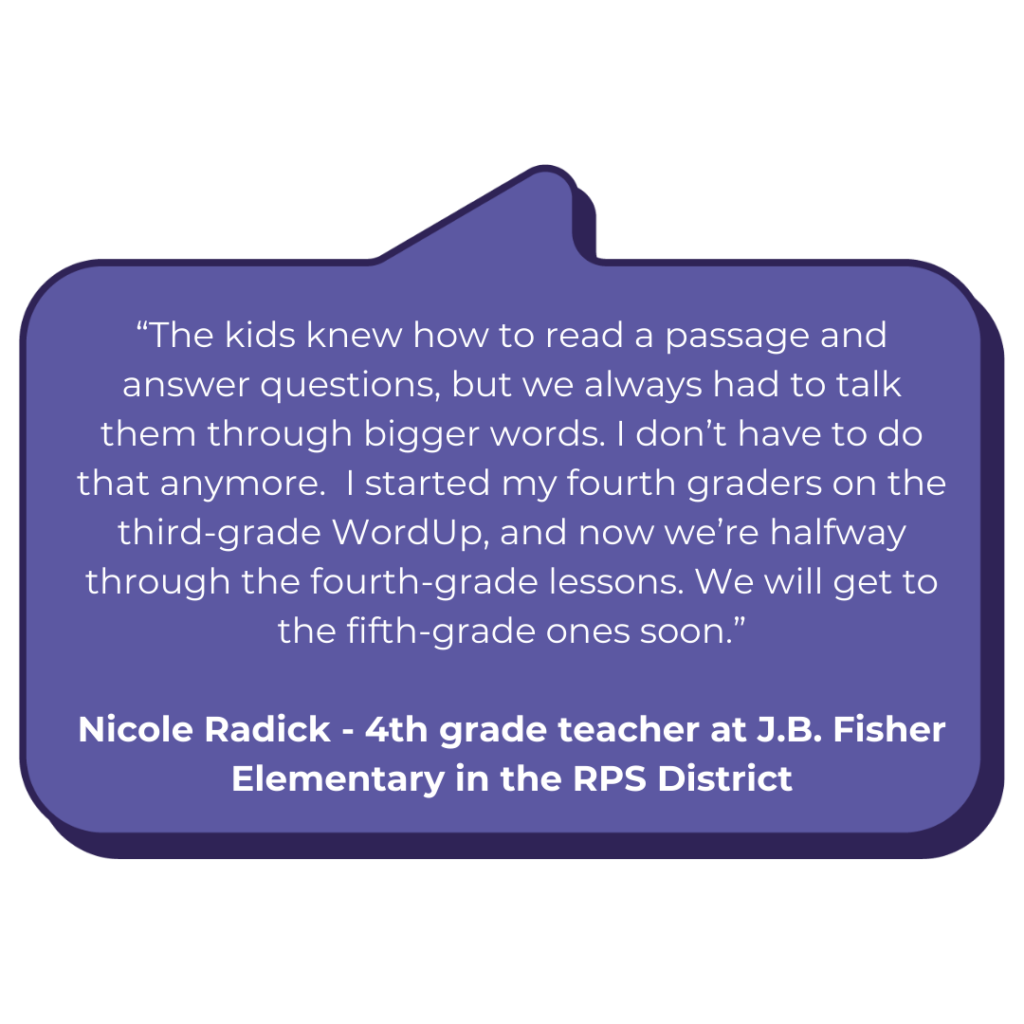
Arianna and the teachers she supported were impressed with the results and the students’ pass rates. “Teachers came to me and said it was because of Flocabulary that we achieved such amazing pass rates on our SOLs,” she explained.
Nicole recalls how Flocabulary’s potential helped bridge the gap between reading and understanding so her students could advance: “The kids knew how to read a passage and answer questions, but we always had to talk them through bigger words. I don’t have to do that anymore. I started my fourth graders on the third-grade WordUp, and now we’re halfway through the fourth-grade lessons. We will get to the fifth-grade ones soon.”
Building vocabulary and engagement through Word Up and videos
At RPS, teachers use Flocabulary’s high-quality hip-hop videos to tackle Tier 2 and Tier 3 vocabulary and concepts across all subject areas. They assign various videos as warm-up activities in each class, and students also engage with them as part of station activities.

Nicole uses Word Up as her class’s vocabulary lesson. She introduces a video on Monday and sets an assignment for delivery the following Friday. Her students watch the video each day, and by midweek, they’re working on activities in small groups and taking the words home to practice. Finally, the week wraps up with a quiz.
Videos, and Word Up, in particular, have also driven engagement and self-esteem as her students progress and build their word knowledge. For Nicole, whose class is not departmentalized, it’s a one-stop shop for the subjects she teaches, including history, language arts, math, and science.
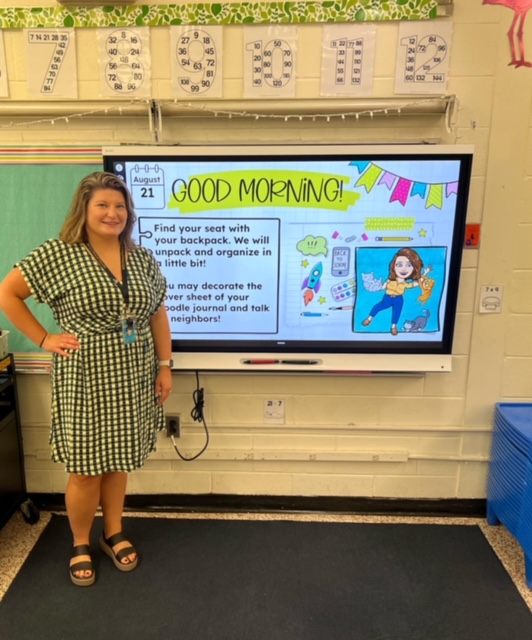
“Content-wise, I’ve found it great for Virginia Studies. There’re a lot of good history ones … recently, we watched an outstanding video on the American Revolution, and we used one on the planets—every subject, really.”
Students felt a stronger connection with the content as they thoroughly enjoyed using hip-hop music to enhance the fun and engagement of learning. While it begins with the videos, Flocabulary integrates elements of hip-hop as the lesson sequence builds, ultimately empowering students to create their own rhymes, beats, and music—a great opportunity to spotlight creativity!
Using Break It Down activities for test prep
The Break It Down activity can be applied to any Flocabulary lesson and is designed to support, challenge, and cultivate students’ skills as they analyze, gather evidence, and synthesize their thoughts and responses.
For RPS, Break It Down was a game changer. Arianna recommends the activity for test prep and readiness, as it builds skills critical for comprehension across all subjects:
“When I was a third-grade teacher, the one thing that I said every day was you need to prove your answers. Find your text evidence and explain why everything matches up. So when my teachers say they need something to get them ready for state testing, I tell them that Break It Down is something you can use in every subject area.”
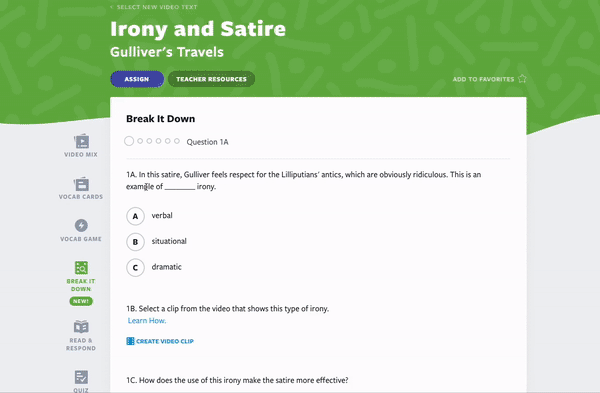
Increasing participation in every lesson with Nearpod
Because Nearpod seamlessly integrates with Flocabulary, teachers can efficiently turn existing lessons into interactive experiences that encourage classroom participation.
Arianna recalls that teachers love using the Google Slides add-on with Nearpod to enrich their lessons; including activities such as Time to Climb, Matching Pairs, and Drag and Drop support the development of phonics curriculum in a dynamic, gamified way both students and teachers enjoy.
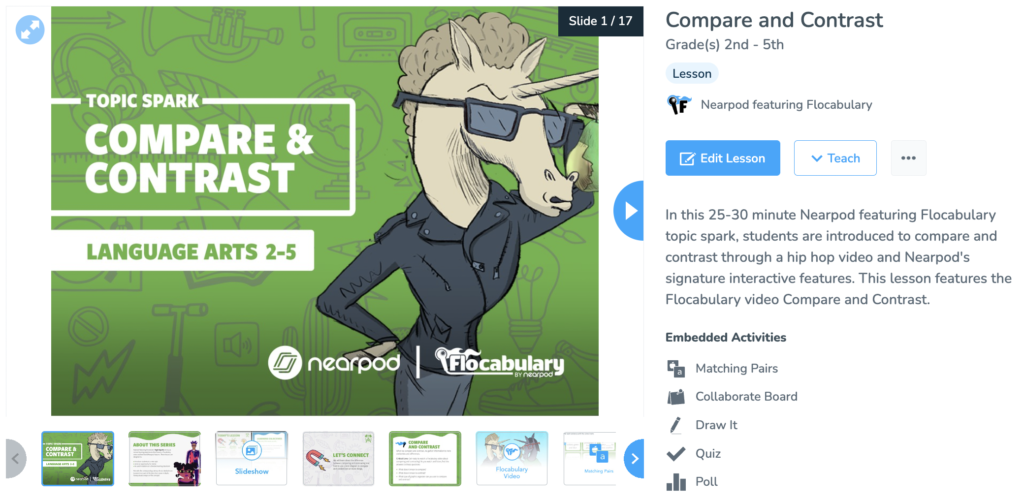
Scores and results that made teachers smile
After using Flocabulary intentionally for one year, teachers and students were clearly more engaged and excited about spelling and grammar.
But the real test—state testing!
When students returned to full-time classroom learning, fourth-grade teachers who were part of the test group had concerns. However, they were pleasantly surprised to find that the pass rates were exceptional.
Even better: By the end of year two, using Flocabulary, the outcomes continued to improve. As Nicole reiterates:
“We focus a lot on growth. It’s not just about pass or fail. Last year, we diligently used Flocabulary daily, and the scores in reading registered 75% combined proficiency and growth, 60% growth, and 30% proficiency. With math, combined proficiency and growth were 90%. Proficiency was up 40%, and growth was 85%.”
RPS is dedicated to enhancing proficiency and advancement rates in subjects such as reading, writing, math, science, and social studies. In line with this commitment, the district makes its test results publicly available on its website. These assessments serve as crucial indicators of their academic performance and provide valuable insights into students’ progress in meeting state educational standards.
What’s next?
Looking ahead, Arianna eagerly anticipates introducing new Flocabulary features to her teachers and students. “The fit for our school division has been absolutely perfect. As early adopters of Flocabulary, I’m planning to train all our tech integrators on Break It Down as soon as possible, especially since it’s much needed for K-8.”
She also attributes a significant portion of the progress to the district’s support and confidence in her, her EdTech team, teachers, and students:
“I consider myself fortunate to be part of a district that genuinely prioritizes what’s best for ALL the kids we serve. The ongoing investment in tools like Flocabulary truly reflects the district’s commitment. May this trend continue for years to come!”
About the educators
Arianna Trickey, M.T., M.Ed., is an educational technology integrator for the Richmond Public Schools District. She holds a B.A. in History, an M.T. in Elementary Education, and an M.Ed. from the University of Virginia. After graduating, Arianna moved to Richmond, VA, where she taught third grade for the Richmond Public Schools district. In 2020, she received the R.E.B. Award for Teaching Excellence at Swansboro Elementary School. Since 2022, Arianna has been one of the school district’s EdTech integrators, supporting four of its 54 sites. As an EdTech integrator, Arianna coaches teachers in creating engaging and accessible instruction through the innovative use of technology. She is passionate about ensuring educators have the support and resources they need to enhance student learning outcomes.
Nicole Radick is a fourth-grade teacher at J.B. Fisher Elementary in the RPS District. She holds a Bachelor of Multidisciplinary Studies with an emphasis in English and a Masters in Elementary Education and English 6-8 Education from West Virginia University. She earned her National Board Certification in Middle Childhood in 2021. Nicole serves as a mentor teacher for the Virginia Commonwealth University Education program, where she hosts student interns in her class multiple times a year. Nicole is also an academic architect for the Virginia Studies curriculum for RPS. For this, Nicole is currently creating slide decks and Nearpod lessons to go with each of the Virginia Studies standards. Nicole is excited about technology and integrating it as a fluid and seamless part of education.
About the district
Richmond Public Schools (RPS) serves around 22,000 preschool-12 students. The division comprises 25 elementary schools, including one charter school, seven middle schools, five comprehensive high schools, three specialty schools, and five preschool centers. Grounded by its three core values— equity, engagement, and excellence—and guided by its five-year strategic plan, Dreams4RPS, the district is committed to creating inclusive, dynamic, and diverse schools, with a division that actively fights systemic injustices and institutionalized racism.
In partnership with Virginia Commonwealth University (VCU), RPS offers the state’s first teacher residency program, Richmond Teacher Residency (RTR). Through its National Teacher of the Year Award, the division also honors educators who inspire children from all backgrounds, earn the respect of their peers, and are active members of the community.
- SEO Powered Content & PR Distribution. Get Amplified Today.
- PlatoData.Network Vertical Generative Ai. Empower Yourself. Access Here.
- PlatoAiStream. Web3 Intelligence. Knowledge Amplified. Access Here.
- PlatoESG. Carbon, CleanTech, Energy, Environment, Solar, Waste Management. Access Here.
- PlatoHealth. Biotech and Clinical Trials Intelligence. Access Here.
- Source: https://blog.flocabulary.com/richmond-public-schools-district-success-story/
- :has
- :is
- :not
- :where
- $UP
- 000
- 14
- 2020
- 2021
- 2022
- 22
- 25
- 264
- 54
- a
- Able
- About
- absolutely
- academic
- access
- accessible
- achieved
- achievement
- achieving
- across
- active
- actively
- activities
- activity
- Add-on
- adopters
- advance
- advancement
- After
- ahead
- align
- aligned
- All
- also
- always
- amazing
- American
- an
- analyze
- and
- answer
- answers
- anticipates
- any
- anymore
- applied
- approach
- ARE
- AREA
- areas
- around
- Arts
- AS
- assessment
- assessments
- At
- attributes
- available
- award
- award-winning
- b
- backgrounds
- BE
- because
- been
- begin
- BEST
- Better
- between
- bigger
- board
- boosting
- both
- bounds
- Break
- BRIDGE
- Bringing
- build
- Building
- builds
- but
- by
- came
- CAN
- Catalyst
- Centers
- Certification
- challenge
- Changer
- Children
- class
- clearly
- climb
- closely
- combined
- comes
- commitment
- committed
- commonwealth
- community
- completely
- comprehensive
- comprises
- concepts
- Concerns
- conducted
- confidence
- connection
- Consider
- content
- continue
- continued
- Core
- correlated
- could
- course
- create
- Creating
- critical
- crucial
- Cultivate
- culturally
- Currently
- Curriculum
- daily
- data
- day
- decided
- dedicated
- deep
- deeper
- delivery
- designed
- determining
- Development
- diligently
- district
- dive
- diverse
- Division
- do
- Dont
- down
- driven
- Drop
- due
- during
- dynamic
- e
- each
- eagerly
- Early
- early adopters
- earn
- earned
- easy
- ed
- edtech
- Education
- educational
- educators
- efficiently
- elements
- emphasis
- emphasize
- empowering
- encourage
- encouraging
- end
- engage
- engaged
- engagement
- engaging
- English
- enhance
- enhancing
- enjoy
- enrich
- ensuring
- equally
- equity
- especially
- establishes
- Every
- every day
- everything
- evidence
- exactly
- Excellence
- exceptional
- excited
- Excitement
- Exercise
- existing
- expectations
- Experiences
- Explain
- explained
- Exploring
- extra
- faced
- facilitate
- FAIL
- feat
- Features
- felt
- fights
- Finally
- Find
- First
- fit
- five
- fluid
- Focus
- focused
- following
- For
- fortunate
- Foster
- found
- four
- Fourth
- Friday
- from
- fun
- game
- game-changer
- gap
- gather
- generates
- get
- gif
- Go
- Goals
- good
- grade
- Grammar
- great
- Group
- Group’s
- Growth
- guided
- had
- halfway
- Have
- he
- help
- helped
- her
- High
- high schools
- high-quality
- history
- Hit
- holds
- Home
- Honors
- hosts
- How
- How To
- However
- HTTPS
- i
- immersion
- Impact
- impactful
- implement
- impressed
- improve
- in
- included
- Including
- inclusion
- Inclusive
- Inclusivity
- increasing
- Indicators
- individual
- initiatives
- innovative
- insights
- inspire
- Integrates
- Integrating
- integration
- intentionally
- interactive
- interest
- into
- introduced
- Introduces
- introducing
- investment
- IT
- ITS
- jpg
- just
- kick
- kids
- Know
- knowledge
- Lack
- language
- Last
- Last Year
- layer
- lead
- leaps
- LEARN
- learning
- lesson
- Lessons
- levels
- leveraging
- Library
- like
- Line
- literacy
- longer
- Lot
- love
- made
- maintain
- MAKES
- mandatory
- many
- matching
- math
- mathematics
- max-width
- May..
- me
- measuring
- meeting
- Members
- mentor
- Middle
- minimum
- Monday
- more
- motivated
- Motivation
- moved
- much
- multidisciplinary
- multiple
- Music
- my
- myself
- National
- Need
- needed
- New
- next
- no
- noted
- now
- observed
- of
- off
- Offers
- often
- on
- ONE
- ones
- ongoing
- only
- Opportunity
- or
- Other
- our
- out
- outcomes
- outstanding
- overview
- overwhelmed
- own
- pairs
- part
- participation
- particular
- Partnership
- pass
- passage
- passionate
- peers
- perfect
- performance
- phrases
- plan
- planning
- plato
- Plato Data Intelligence
- PlatoData
- possible
- potential
- practice
- primarily
- Principal
- prioritizes
- Program
- Progress
- project
- Prove
- provide
- public
- publicly
- Questions
- Quiz
- R
- racism
- Rates
- rather
- reach
- reached
- reaching
- Read
- Readiness
- Reading
- ready
- real
- realized
- really
- received
- recently
- recommended
- recommends
- reflects
- registered
- Reported
- Requirements
- Resonate
- Resources
- respect
- responses
- responsive
- Results
- reviewed
- Revolution
- rps
- Said
- saw
- say
- School
- Schools
- Science
- scores
- seamless
- seamlessly
- separate
- Sequence
- serve
- serves
- session
- sessions
- set
- Sets
- seven
- she
- Shop
- should
- significant
- simply
- since
- Sites
- skills
- Slide
- Slides
- small
- So
- Social
- SOL
- solar
- Solar system
- some
- something
- Soon
- sought
- Spark
- Specialty
- spelling
- Spotlight
- standards
- started
- State
- station
- Strategic
- strategies
- strength
- Strengthen
- strong
- stronger
- Student
- Students
- studies
- subject
- such
- summarize
- support
- Supported
- Supporting
- surprised
- system
- systemic
- T
- table
- tackle
- Tackles
- taking
- Talk
- Target
- taught
- teacher
- teachers
- Teaching
- team
- teams
- tech
- Technology
- tell
- test
- Testing
- tests
- text
- textual
- than
- that
- The
- their
- Them
- themselves
- then
- These
- they
- thing
- things
- Third
- this
- thoroughly
- three
- Through
- tier
- time
- times
- to
- took
- tools
- Train
- Trend
- truly
- TURN
- two
- Ultimately
- understand
- understanding
- university
- unlocking
- use
- used
- uses
- using
- Valuable
- various
- Video
- Videos
- virginia
- want
- wanted
- was
- Watch
- Way..
- ways
- we
- week
- WELL
- were
- West
- West Virginia
- What
- when
- whether
- which
- while
- WHO
- whose
- why
- will
- with
- Word
- words
- working
- writing
- year
- years
- you
- Your
- zephyrnet

